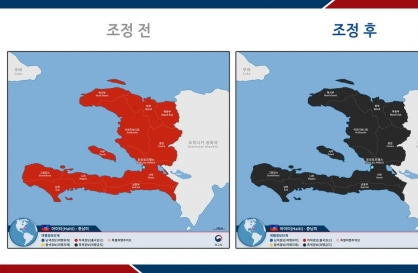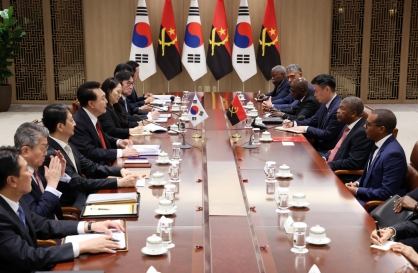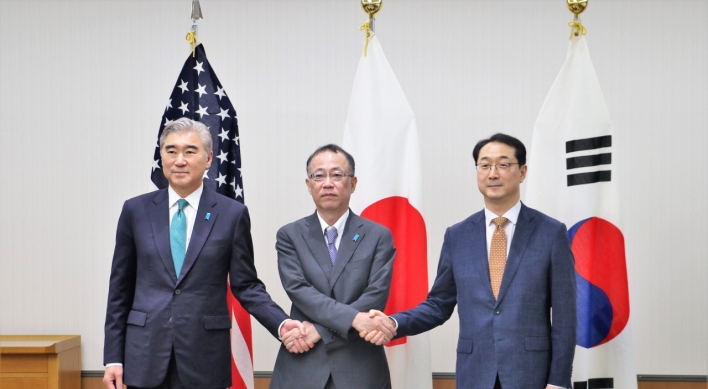Hyundai Motor said that it would develop a mid-sized sedan aimed at mostly Chinese customers by 2013.
The project to launch a China-oriented sedan came as the automaker anticipates that the sales of middle-class sedans will surge in coming years in the Asian superpower, a Hyundai spokesman said Wednesday.
“The China-oriented sedan will not be a remodeled car,” he said. “A new model which would undergo all processes from design to production will be unveiled.”
The sedan will likely be produced at Beijing Hyundai Motor’s third factory, scheduled to go into operation next year, according to the Hyundai spokesman.
Last November, the automaker began work on its third plant in China to have an annual production capacity of 400,000 units.
Following its completion, scheduled for July 2012, Beijing Hyundai’s annual production capacity will be increased to 1 million units, the company said.
Hyundai’s two existing facilities each have an annual production capacity of 300,000 units.
Hyundai established its first production facility in China in 2002, and doubled its production capacity in 2008. All three facilities are operated by Beijing Hyundai Motor, a joint venture between Hyundai and Beijing Automotive Holdings.
The company said it plans to begin producing a small vehicle designed for the Chinese market at the new plant during the second half of 2012, and that other models designed for the market will be added to the plant in the future.
In addition, Hyundai Motor recently finalized a deal with China’s Sichuan Nanjun Automobile Co. to establish a commercial vehicle plant in China.
Sales of Hyundai Motor in China came to about 246,400 between January and April, while the figure surpassed 700,000 last year.
By Kim Yon-se (kys@heraldcorp.com)
The project to launch a China-oriented sedan came as the automaker anticipates that the sales of middle-class sedans will surge in coming years in the Asian superpower, a Hyundai spokesman said Wednesday.
“The China-oriented sedan will not be a remodeled car,” he said. “A new model which would undergo all processes from design to production will be unveiled.”
The sedan will likely be produced at Beijing Hyundai Motor’s third factory, scheduled to go into operation next year, according to the Hyundai spokesman.
Last November, the automaker began work on its third plant in China to have an annual production capacity of 400,000 units.
Following its completion, scheduled for July 2012, Beijing Hyundai’s annual production capacity will be increased to 1 million units, the company said.
Hyundai’s two existing facilities each have an annual production capacity of 300,000 units.
Hyundai established its first production facility in China in 2002, and doubled its production capacity in 2008. All three facilities are operated by Beijing Hyundai Motor, a joint venture between Hyundai and Beijing Automotive Holdings.
The company said it plans to begin producing a small vehicle designed for the Chinese market at the new plant during the second half of 2012, and that other models designed for the market will be added to the plant in the future.
In addition, Hyundai Motor recently finalized a deal with China’s Sichuan Nanjun Automobile Co. to establish a commercial vehicle plant in China.
Sales of Hyundai Motor in China came to about 246,400 between January and April, while the figure surpassed 700,000 last year.
By Kim Yon-se (kys@heraldcorp.com)


















